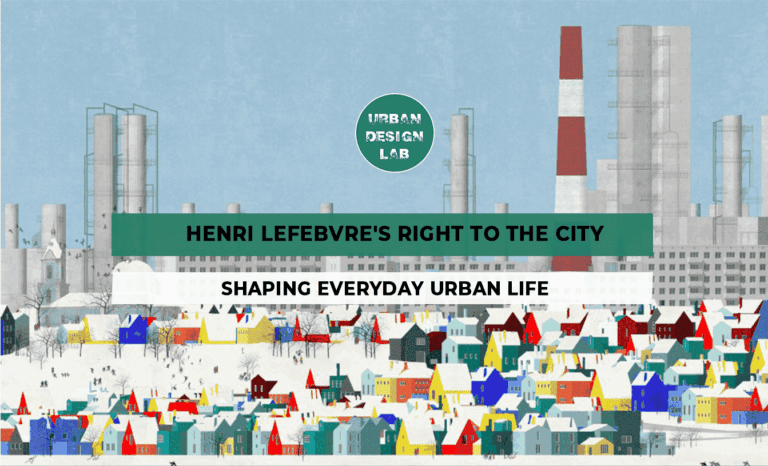
Book Review: The Right to the City by Henri Lefebvre
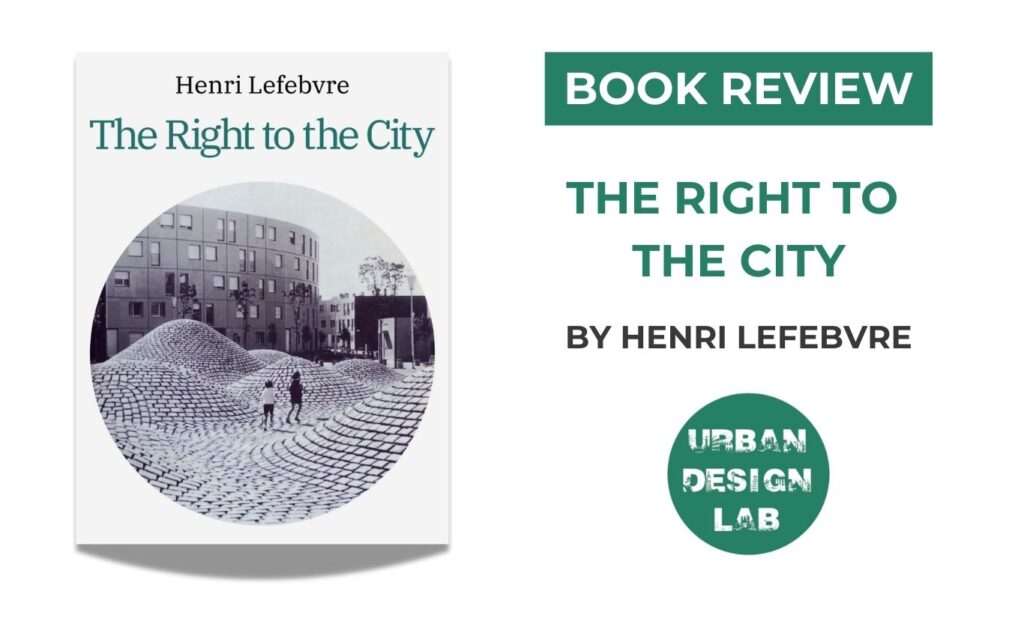
Henri Lefebvre was a French Marxist sociologist and philosopher, who studied the problems of contemporary society. His enduring legacy spans from redefining spatial analysis in social contexts to exploring everyday life, modernity, citizen rights, and urban concerns. The work of Lefebvre continues to influence and inspire research across various disciplines and fields, including sociology, geography, politics, philosophy, and urban studies.
Published in 1968, “The Right to the City” introduces this revolutionary concept advocating for equitable urban access and active citizen participation in urban development. Lefebvre critiques contemporary urbanization for prioritizing economic interests over human needs, resulting in cities that favor the elite and marginalize the poor and working class. He argues that urban space is socially constructed through daily interactions, emphasizing that the right to the city encompasses more than physical access, it entails the right to actively shape and transform urban environments.
This vision promotes a democratic and inclusive urban planning process where all residents contribute to decision-making. Lefebvre’s critique extends to the commodification of urban spaces under capitalism, which he believes fuels consumption and societal detachment. He calls for a revolutionary approach to urbanism that challenges existing power dynamics and aims to create fairer, more equitable cities.
Space, abstraction and law
According to Henri Lefebvre there is a connection, between abstraction and law. He argues that abstract space is not naturally occurring but influenced by economic factors. He critiques how these systems turn space into commodities and impose standardization ultimately reinforcing the commercialization of space.
Lefebvre emphasizes the impact of law, on shaping space through visuals and the promotion of transparency. However this often masks underlying inequalities and systemic injustices. This alignment of capitalism and state power serves the interests of control and marginalization. By examining the aspects of abstraction Lefebvre calls for a critical reevaluation of how laws shape urban landscapes. His analysis underscores the importance of recognizing and confronting the role of political mechanisms in perpetuating inequalities.
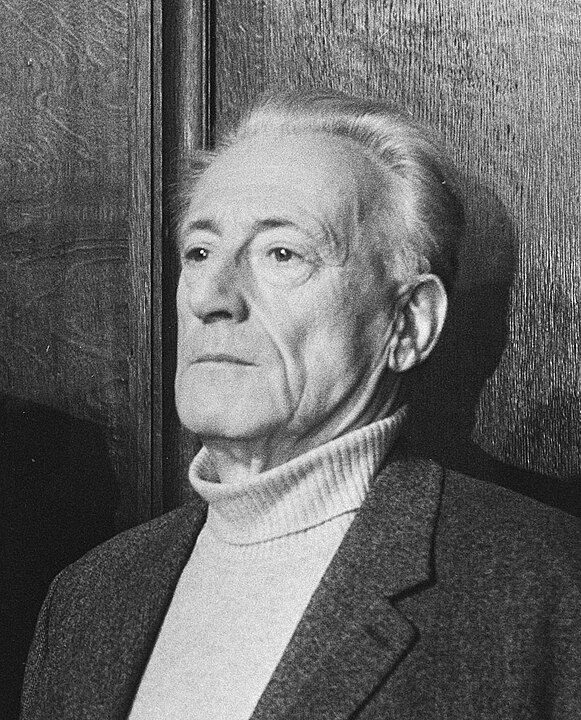
Industrialization and Urbanization
The author seeks to explain the relationship between industrialization and urbanization, making an in-depth analysis of the effects of industrial processes on urban development. This chapter highlights several critical points:
- Commodification of urban space: the transformation of urban spaces into commercial products.
- Reassessment of urban planning: Social needs must be prioritized
- Democratization of urban governance: the participation of inhabitants in decision-making
- Environmental sustainability: Promote a balance between urban growth and the preservation of natural resources.
Based on his criticism, he embarked on the deconstruction of traditional models of urban development, which were dominated by industry and the interests of capitalism. Calling for fairer urban development; advocating social inclusion, democratic governance and environmental sustainability as the new elements in the configuration of cities.
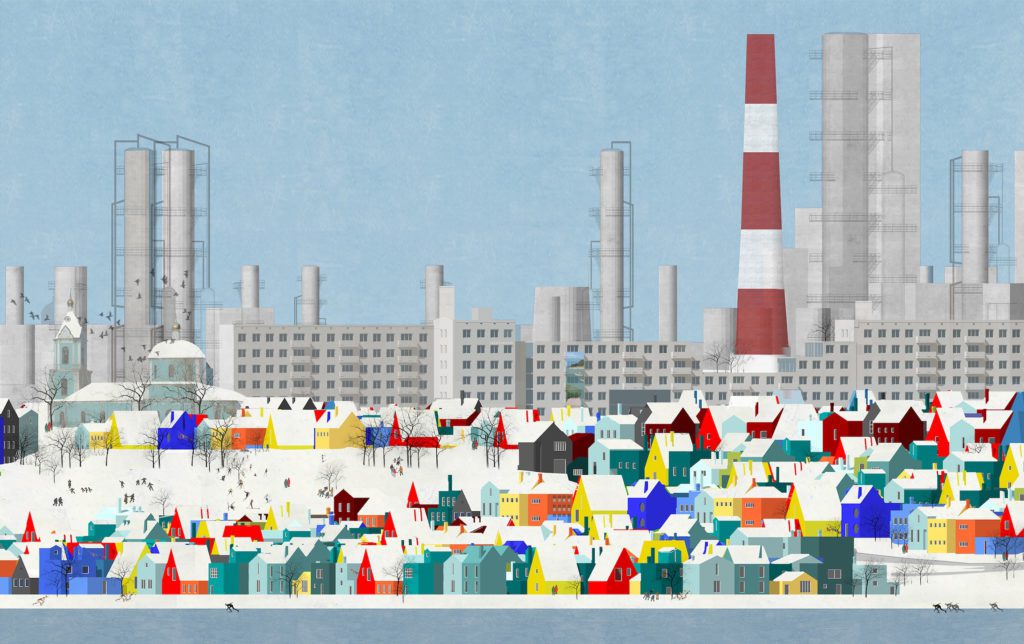
Source: Website Link
State Power and the Politics of Space
In “The Production of Space” Henri Lefebvre’s introduction to the politics of space revolutionizes our understanding of space by presenting it as an active and contested social product rather than a passive site of human activity. Lefebvre argues that space is shaped by economic, political, and cultural processes, with a variety of social actors embedding their interests and ideologies into the urban fabric.
Lefebvre emphasizes that spatial configurations often reinforce social hierarchies and inequalities by privileging certain groups and excluding others. He highlights how dominant powers use space strategically to control populations through mechanisms such as the design of streets and zoning regulations.
Spatial Politics
This control goes beyond physical barriers and includes the social and economic structures that govern urban life. By introducing the concept of spatial politics, Lefebvre calls for a fundamental reassessment of urban research. He urges scholars to recognize the dynamic nature of spatial production and to move beyond static views of space. This perspective opens up critical debates on spatial justice, urban social movements, and the right to the city by understanding space as a continuous site of political struggle and social production.

Urban Revolution
Within his work, he focuses on the power that cities have to transform themselves, especially in the environment of the modern world. The author is convinced that the urbanization process is the main power in the development of economic, political and cultural processes.
Lefebvre maintains that it is necessary to evaluate the way in which urban spaces are produced, with the radical transformation of the urban environment being a primary need. He highlights the importance of citizen movements and popular participation, which are the source of these movements to maintain cities as a space for coexistence.
He maintains that a true urban revolution can only occur when all people come together to challenge existing power structures. Rethinking urban life in a more sustainable and equitable way.
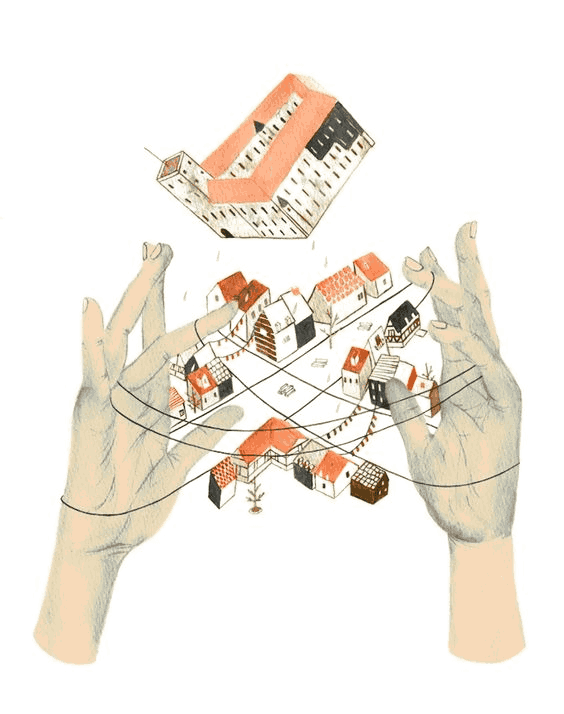
Everyday Life and Urban Space
For Lefebvre, every day is the fundamental principle of social theory. He begins by highlighting the importance of everyday interactions, which will eventually reconfigure urban spaces. He critiques conventional state-driven capitalist developments and advocates for cities to articulate a vision of residents’ real needs and desires.
1. Democratizing Urban Space
In this sense, it aims to make citizen participation in urban planning visible. It was about the commitment to a more inclusive city mode, based on prioritizing daily life. For Lefebvre:
“Modernity appears as the “shadow” cast over bourgeois society by the failure of revolution, at once a compensatory substitute and the ineliminable trace of vanquished hopes” (Kouvelakis, 2008).
He finds that everyday practices, in his opinion, reveal contradictions in urban planning. This somehow speaks to the idea of reclaiming the “right to the city”, where people take it back to take control and build meaningful spaces.
2. Triad of Space
Henri Lefebvre describes the concept of “Triad of Space” as a way of referring to the interaction between perceived, conceived and habitable space in cities. This approach analyzes how these sectors connect as part of the urban experience. Highlighting the importance of understanding the interaction of inhabitants with their urban environment.
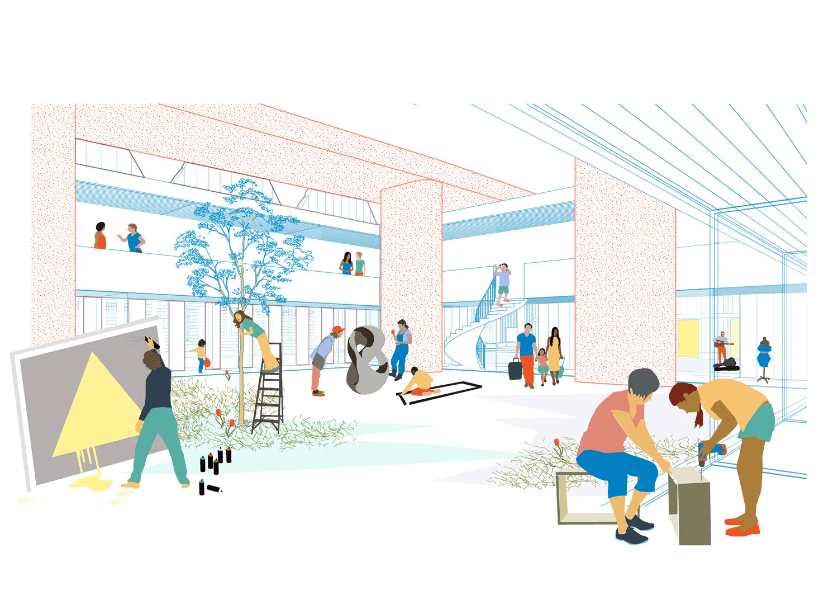
Right to the City
The right to the city can be defined as a constant struggle to achieve just spaces. For Lefebvre, cities are not only the result of industry and capital, but a “work of art” created by their inhabitants. This principle goes beyond access to urban services, it implies having active participation in decisions about the urban environment, promoting self-management, and appropriation of public space.
For this reason, the author invites us to visualize cities as our “home” where social justice and spatial equity are paramount. This concept calls for a radical restructuring of urban governance and planning to prioritize the needs and voices of all inhabitants, especially marginalized communities.
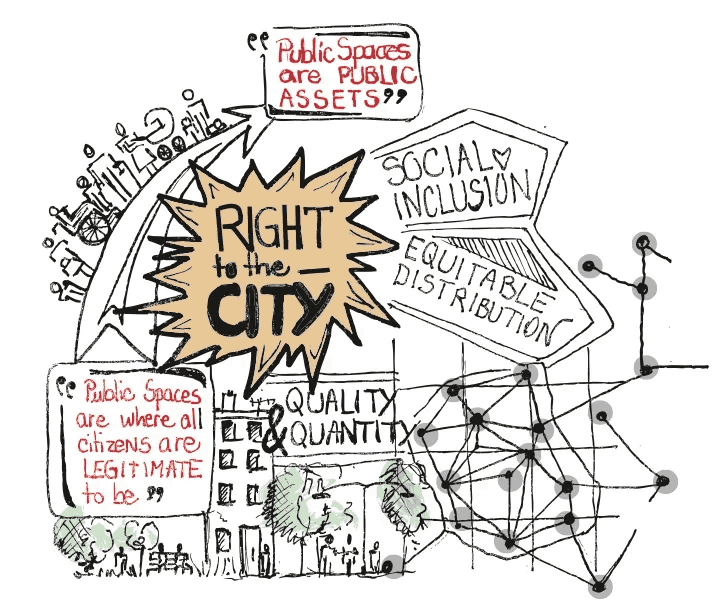
The Right to the Difference
“The Right to Difference” is one of Henri Lefebvre’s essays that complements his broader urban theory on the “right to the city”. The author seeks to show the importance of coexistence and the exchange of different visions in the urban environment. He makes it clear how the new capitalist societies have portrayed spaces and lifestyles as a single line, which is why different cultural elements have been eliminated.
The Diversity of Urban Space
Through his work, Lefebvre emphasizes the fact that authentic urban democracy requires the recognition and promotion of this diversity as paramount. The right to difference requires an urban space where diverse social, cultural and ethnic groups coexist; encourage people to live and work together.
The concept of the city as a point of connection is the core of Levebvre’s argument, where the differences between people are the force that shapes urban space. Suggesting the creation of public spaces and policies to promote social inclusion, cultural exhibition and community building. Advocating for urban spaces to be fairer and more dynamic, calling for an active commitment from all inhabitants to adequately reflect the diversity, as well as the socioeconomic and cultural aspirations of their residents.
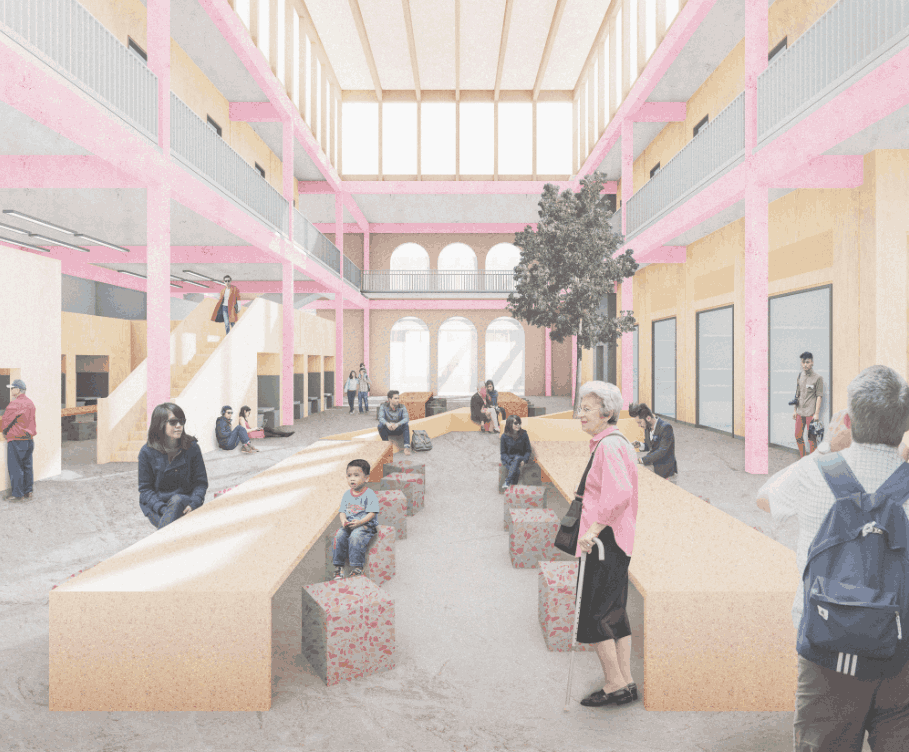
Urban Space and Social Movements
By exploring citizen participation in urban space, Lefebvre analyzes how social movements emerge as a form of rejection of the power structure, demanding the right to the city.
For this reason, he highlights the importance of activism, as well as the initiatives taken by citizens in the creation and redesign of urban areas into fair spaces oriented to collective needs. Social movements in urban planning are crucial to recover the city and ensure that they reflect agreements with the needs and interests of its inhabitants.

Spatial Citizenship
Henri Lefebvre’s “right to the city” is a call for a more generalized vision of how spatial or urban citizenship has been conceptualized. Have a different, more inclusive and participatory vision in the configuration of urban space. In “Du Contrat de Citoyenneté”, Lefebvre seeks a reformulation of modern citizenship based on his criticism of the conditions of inequality in the rights of citizens, since they were very limited; focusing on the interests of the individual, leaving aside the community.
The Social Contract Model
Although there has been extensive progress in human rights, according to Lefebvre, citizens continue to be immersed in the social contract model, which grants minimal participation beyond simple voting. For this reason, Lefebvre warns us that:
“In recent years there has been a tendency to further attenuate citizenship through a general displacement of the citizen as a political agent by the category of the consumer, whose active role is restricted to demanding the efficient functioning of public services” (Lefebvre, 2005).
From this, he proposes a new model of citizenship for two great current challenges: transnational governance and migration. An important element of this new model is the deepening of citizenship rights, self-management and the democratization of state institutions.
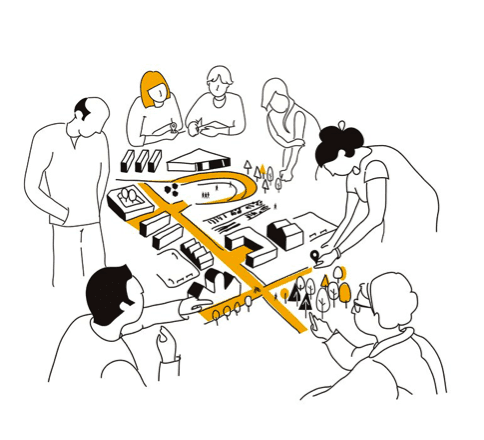
Institutionalizing the Right to the City
The right to the city should not be limited to having a living space; it seeks to guarantee access to decent and affordable housing in an environment that promotes a better quality of life. However, the bigger picture needs to be considered, addressing structural causes of inequality, such as real estate speculation and gentrification. This principle addresses various aspects of urban life, including:
- Access to basic services.
- Inclusive and safe public spaces.
- Environmental Protection.
- Decent economic opportunities.
- Culture and diversity
Henri Lefebvre calls on citizens to get involved in transforming cities, through social mobilization and the construction of alternatives with a perspective from below, seeking a more just and sustainable urban future.
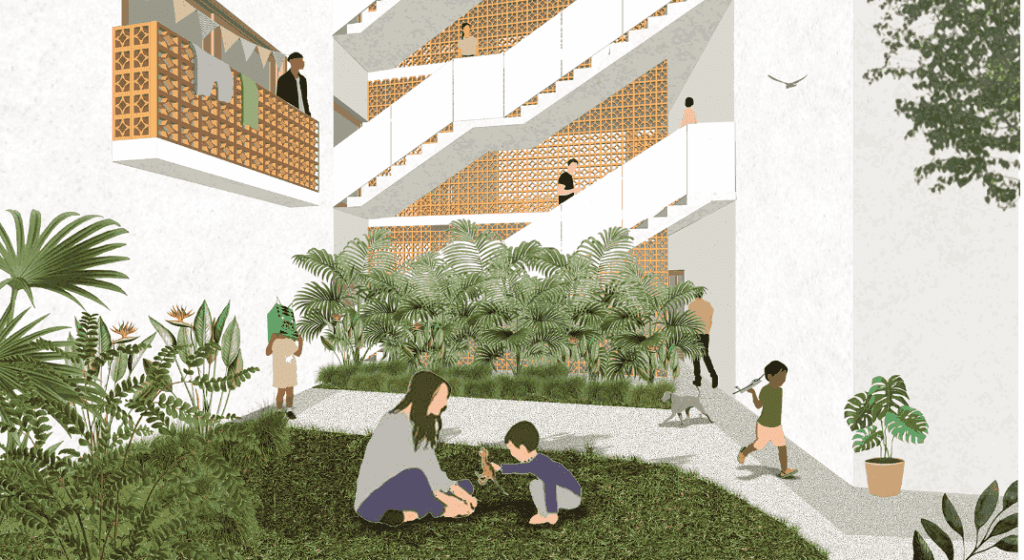
Conclusion
Even today, the concept of the right to the city proposed by Henri Lefebvre is still present in the current urban planning trend but with the premise of introducing fair, inclusive and participatory spaces where all inhabitants can coexist with their environment and have the possibility of access to a higher quality of life.
The urban image of the city, as an environment that embodies collective interests, has become the very center of the fight to reinvent cities. This vision has been presented at international events such as the World Social Forums of 2004 and 2005 to achieve its acceptance as a legal right.
Therefore, this proposal has been the source of inspiration for urban reform movements that help in the fight for the establishment of a right to the city. Lefebvre insists on the importance of citizen participation in the organization of urban spaces, becoming an urban center that is based mainly on the needs and interests of the inhabitants.
References
- Butler, C. (2012). Henri Lefebvre: Spatial politics, everyday life and the right to the city. Routledge.
- Habitat III Policy Unit 1. (2017). Habitat III Policy Paper 1: The Right to the City and Cities for All. United Nations Conference on Housing and Sustainable Urban Development.https://habitat3.org/wpcontent/uploads/Habitat%20III%20Policy%20Paper%201.pdf
- Jagannath, T. (2021, July 13). Lefebvre’s right to the city – Thejas Jagannath – medium. Medium. https://thejas009.medium.com/lefebvres-right-to-the-city-8877467d7153
- Lecoq, M. (n.d.). The Right to the City: An Emancipating Concept? Metropolitics. https://metropolitics.org/The-Right-to-the-City-An-Emancipating-Concept.html
- Speer, J. (2015). Henri Lefebvre: Spatial politics, everyday life and the right to the city. The AAG Review of Books, 3(1), 4–5. https://doi.org/10.1080/2325548x.2015.985526
- Tavolari, B. (2019). The Right to the City: the Trajectory of a Concept. Cebrap. https://www.academia.edu/40407937/The_Right_to_the_City_the_Trajectory_of_a_Concept
- The right to the city. (n.d.). The Anarchist Library. https://theanarchistlibrary.org/library/henri-lefebvre-right-to-the-city

Celeste Barragan
About the Author
Emerging Urban Planner of Mexico City, holds a Bachelor’s degree in Urban Planning from the Metropolitan Autonomous University. He is passionate about mobility, functional urban design and sustainability. Enthusiast of illustration and music, he seeks to innovate urban practices to improve life in cities.
Related articles
UDL GIS
Masterclass
GIS Made Easy – Learn to Map, Analyse, and Transform Urban Futures
Session Dates
23rd-27th February 2026

Urban Design Lab
Be the part of our Network
Stay updated on workshops, design tools, and calls for collaboration
Curating the best graduate thesis project globally!
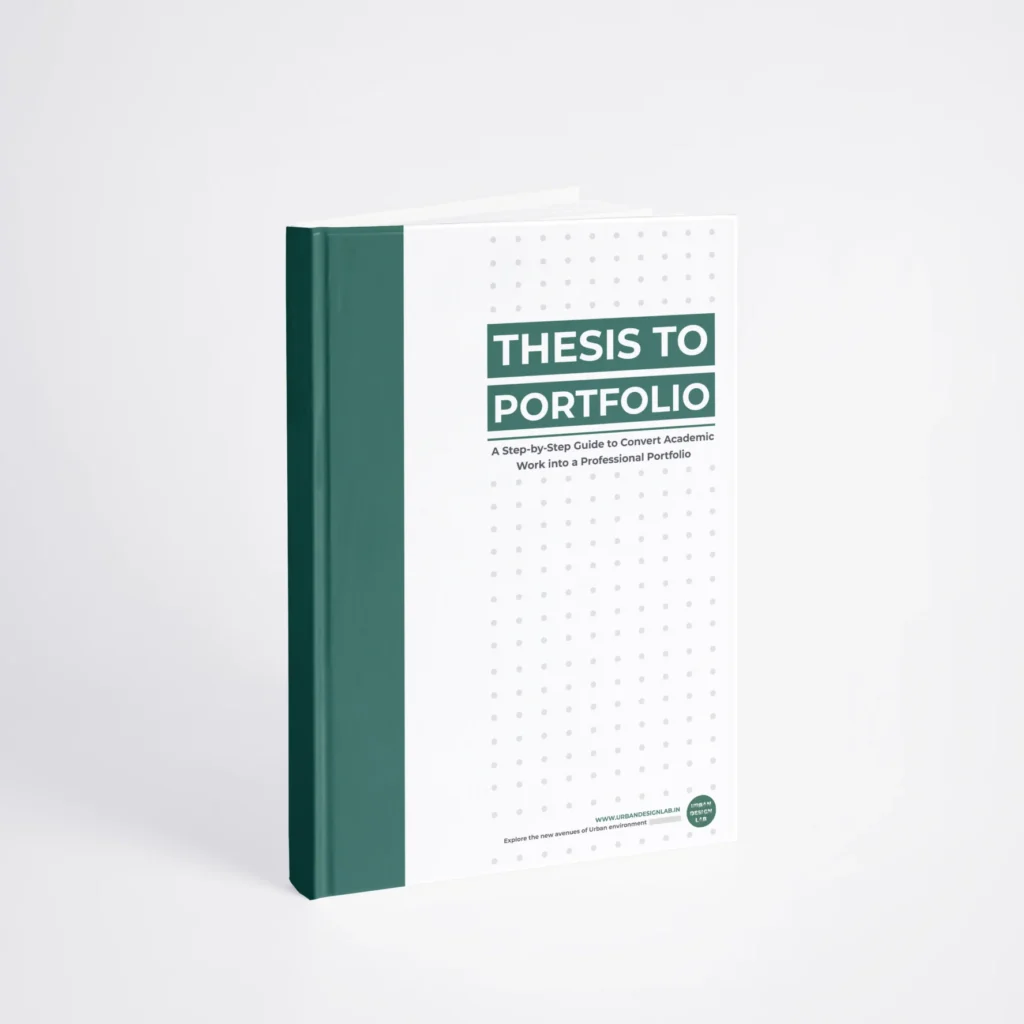
Free E-Book
From thesis to Portfolio
A Guide to Convert Academic Work into a Professional Portfolio”
Recent Posts
- Article Posted:
- Article Posted:
- Article Posted:
- Article Posted:
- Article Posted:
- Article Posted:
- Article Posted:
- Article Posted:
- Article Posted:
- Article Posted:
- Article Posted:
- Article Posted:
- Article Posted:
Sign up for our Newsletter
“Let’s explore the new avenues of Urban environment together “

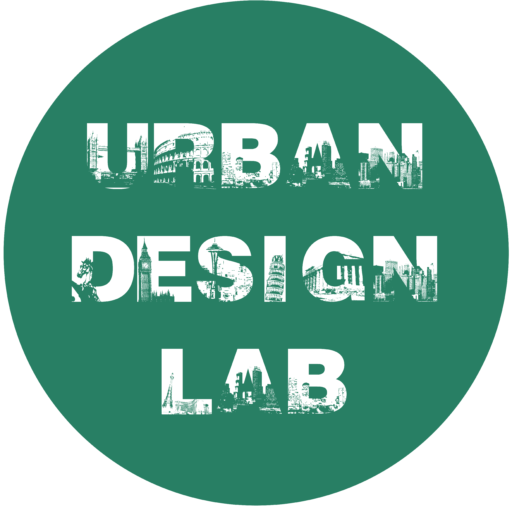
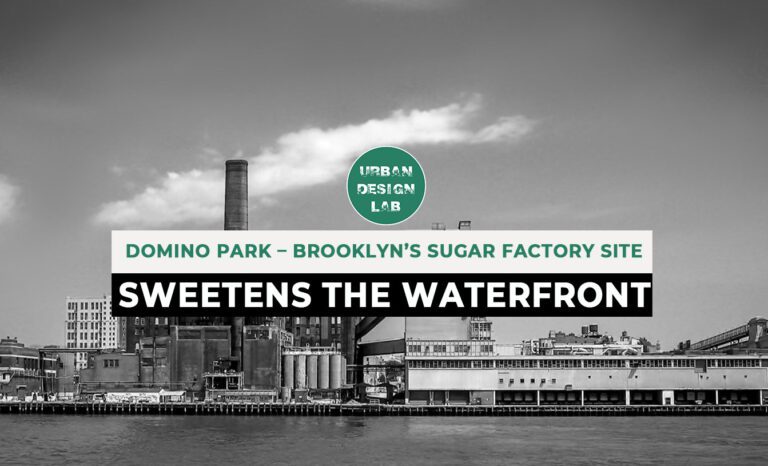
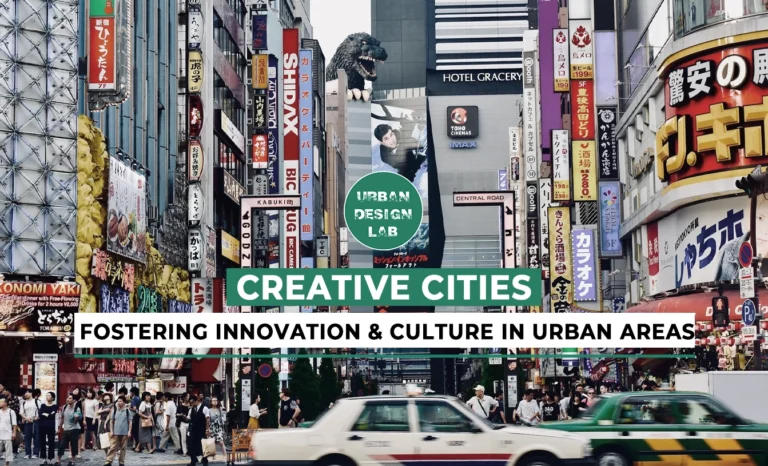
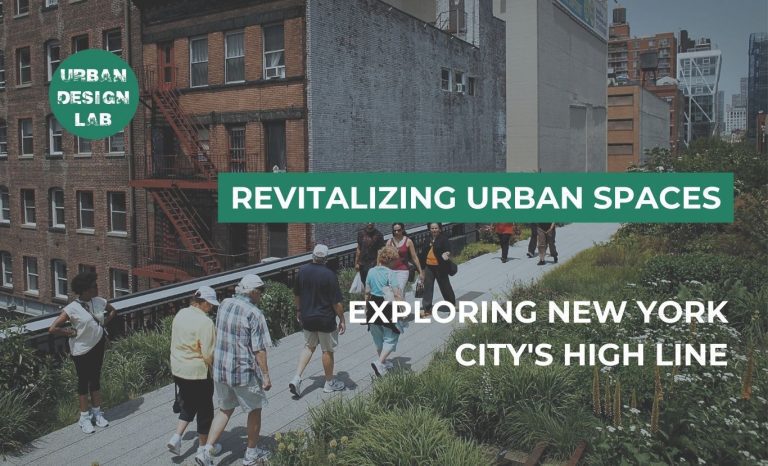
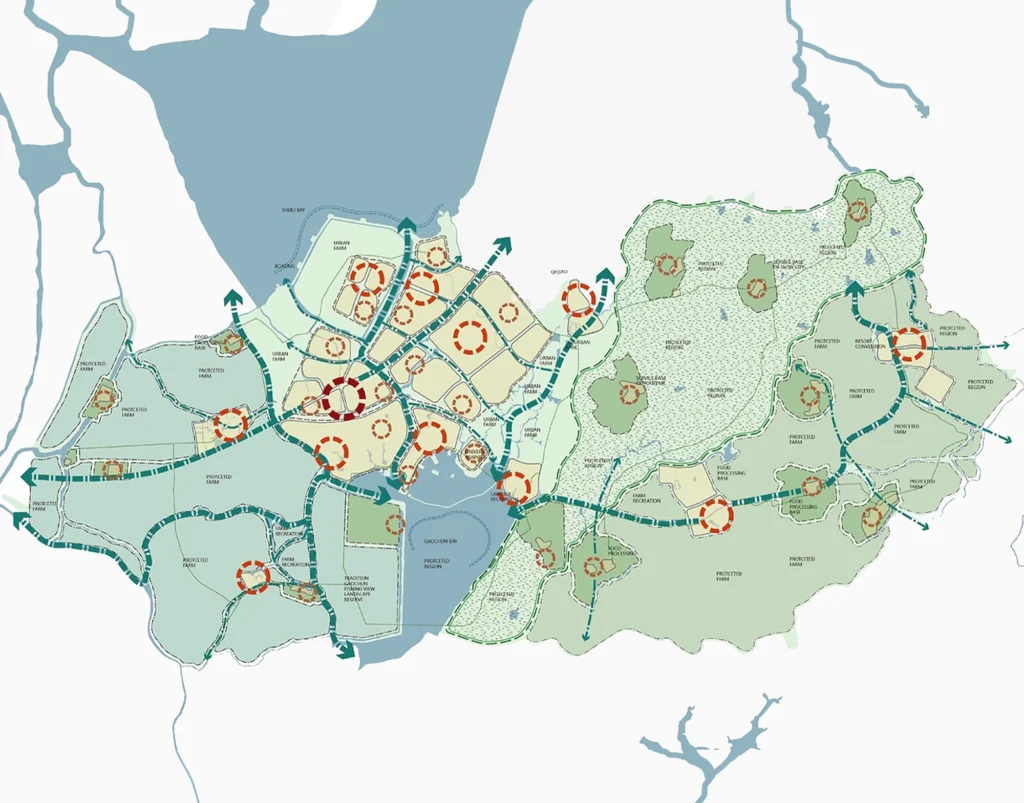
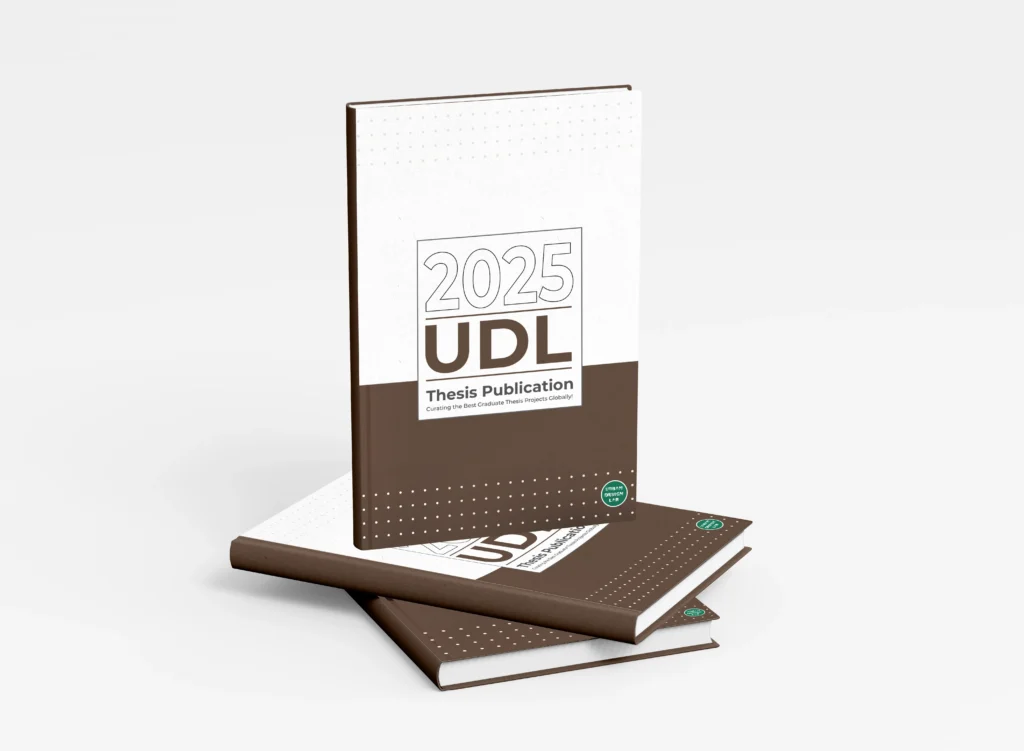

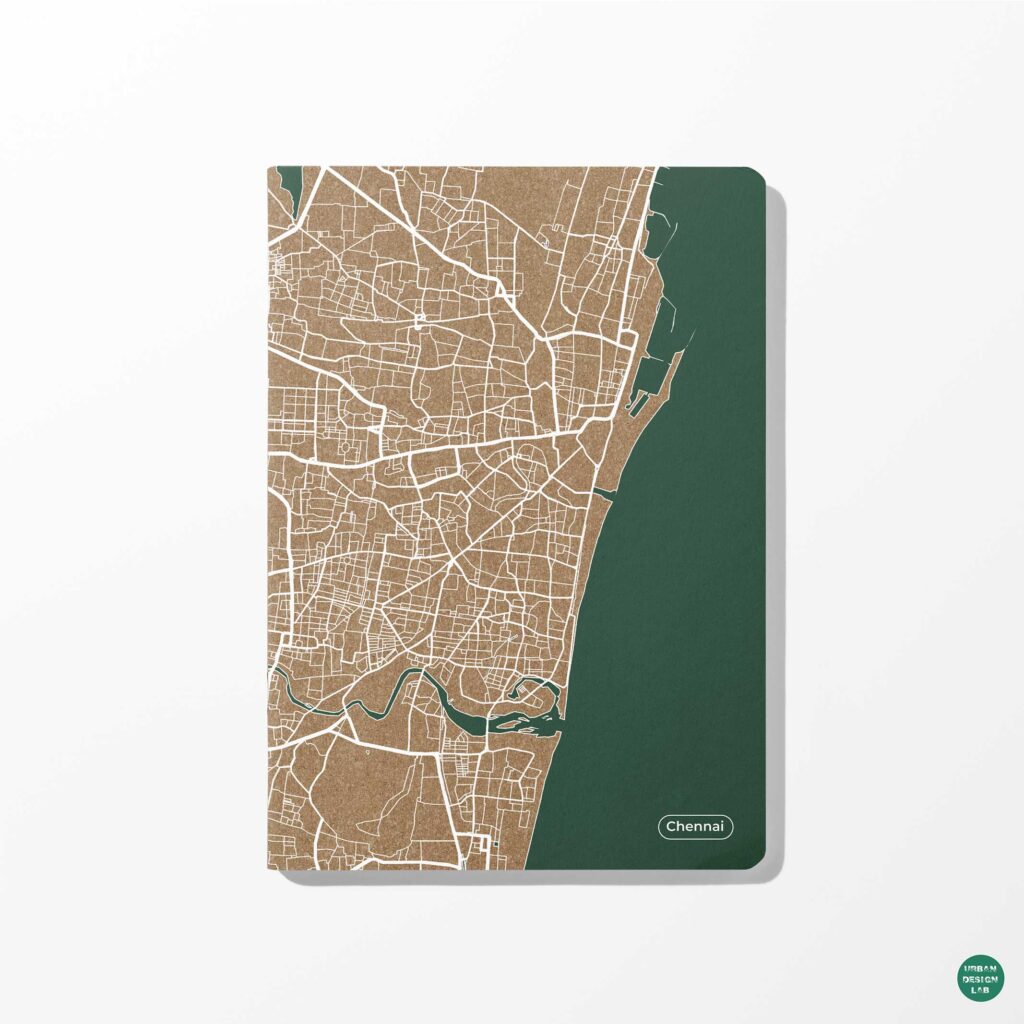
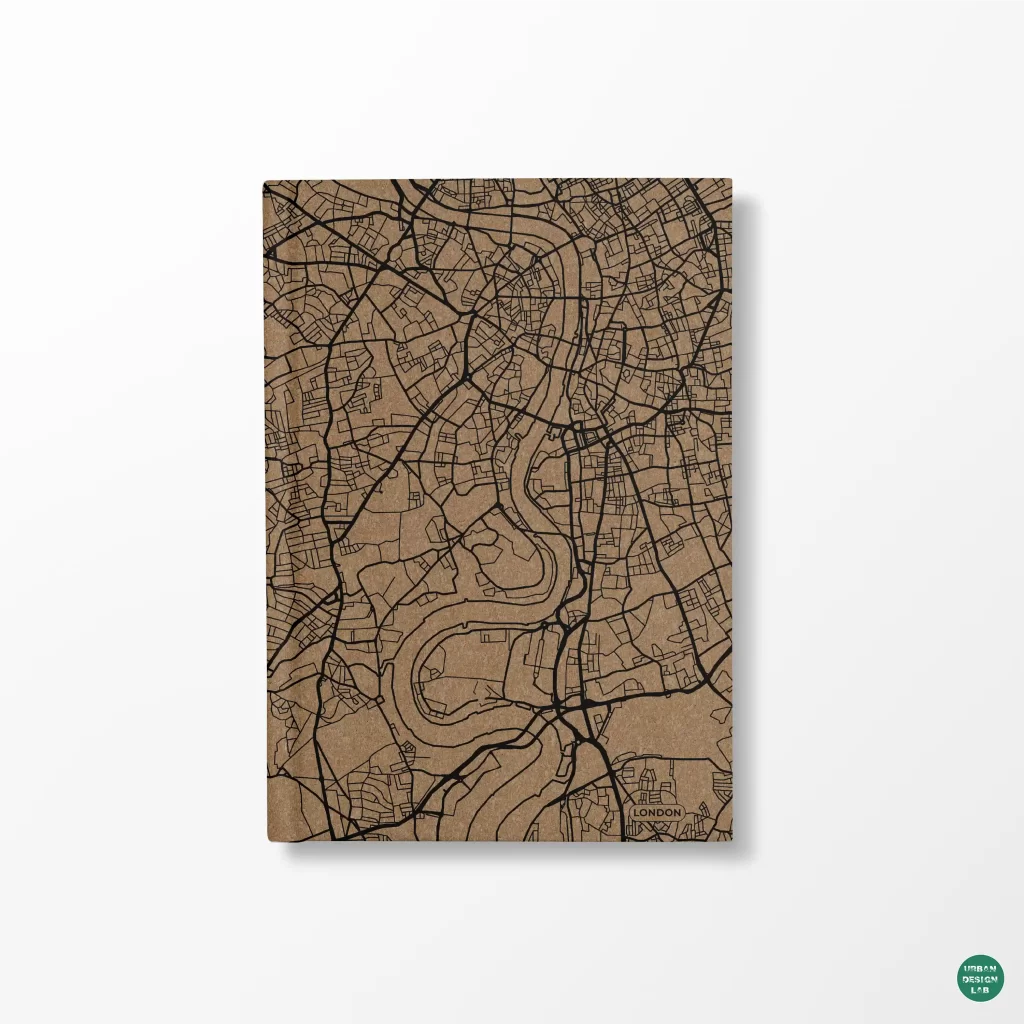
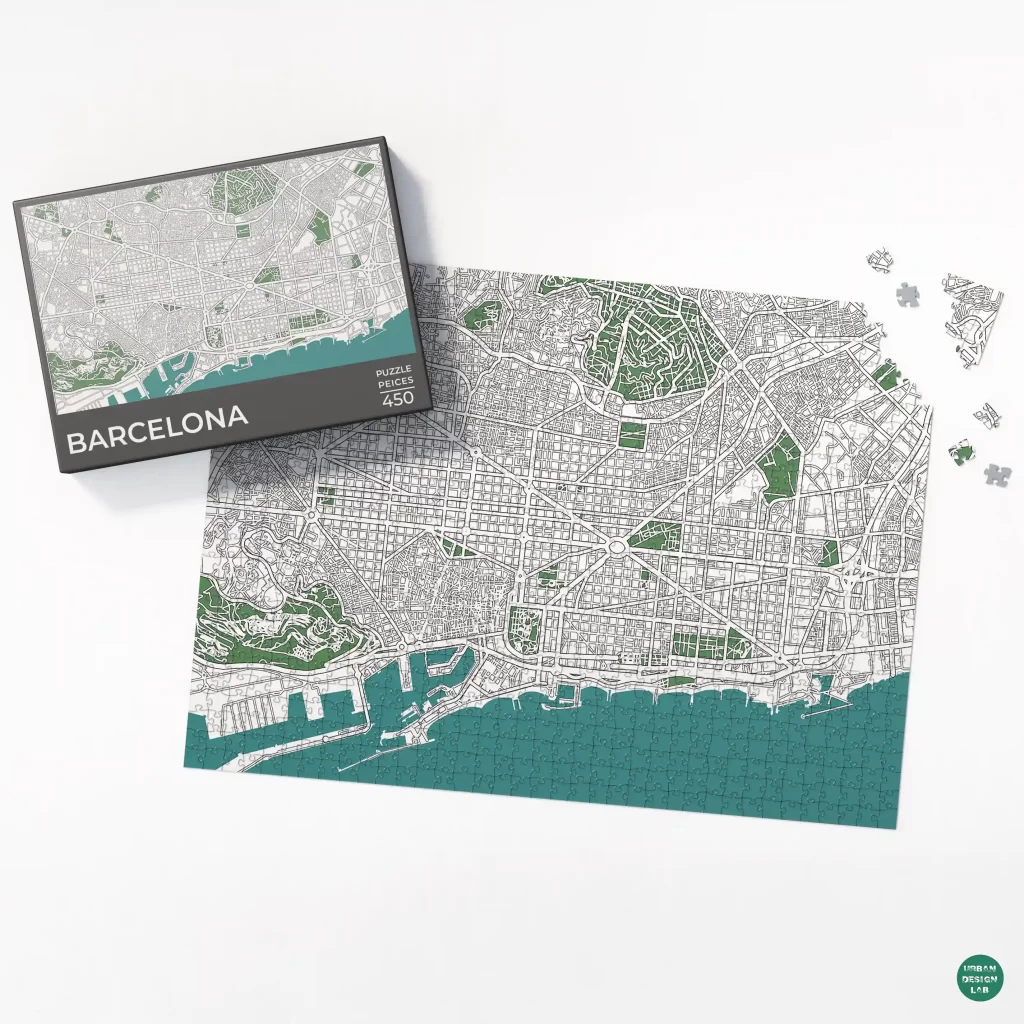
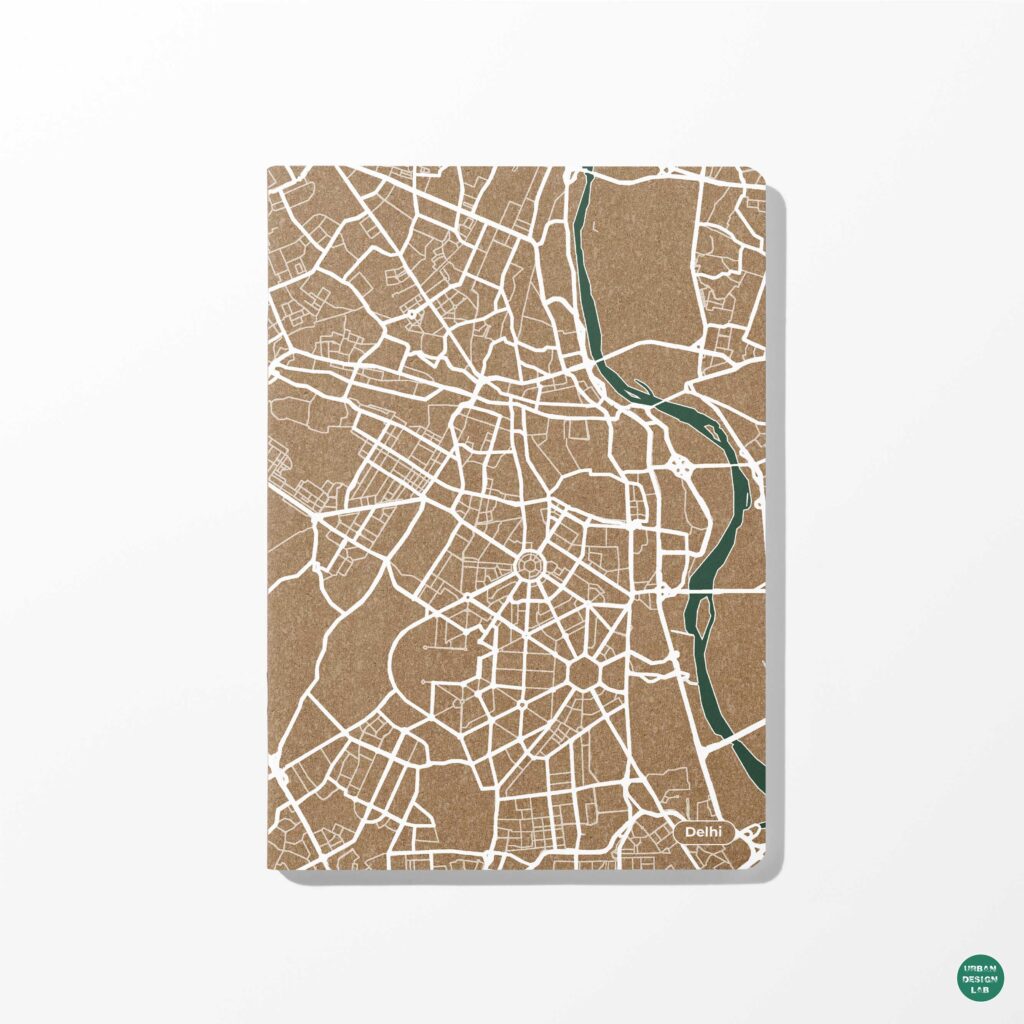


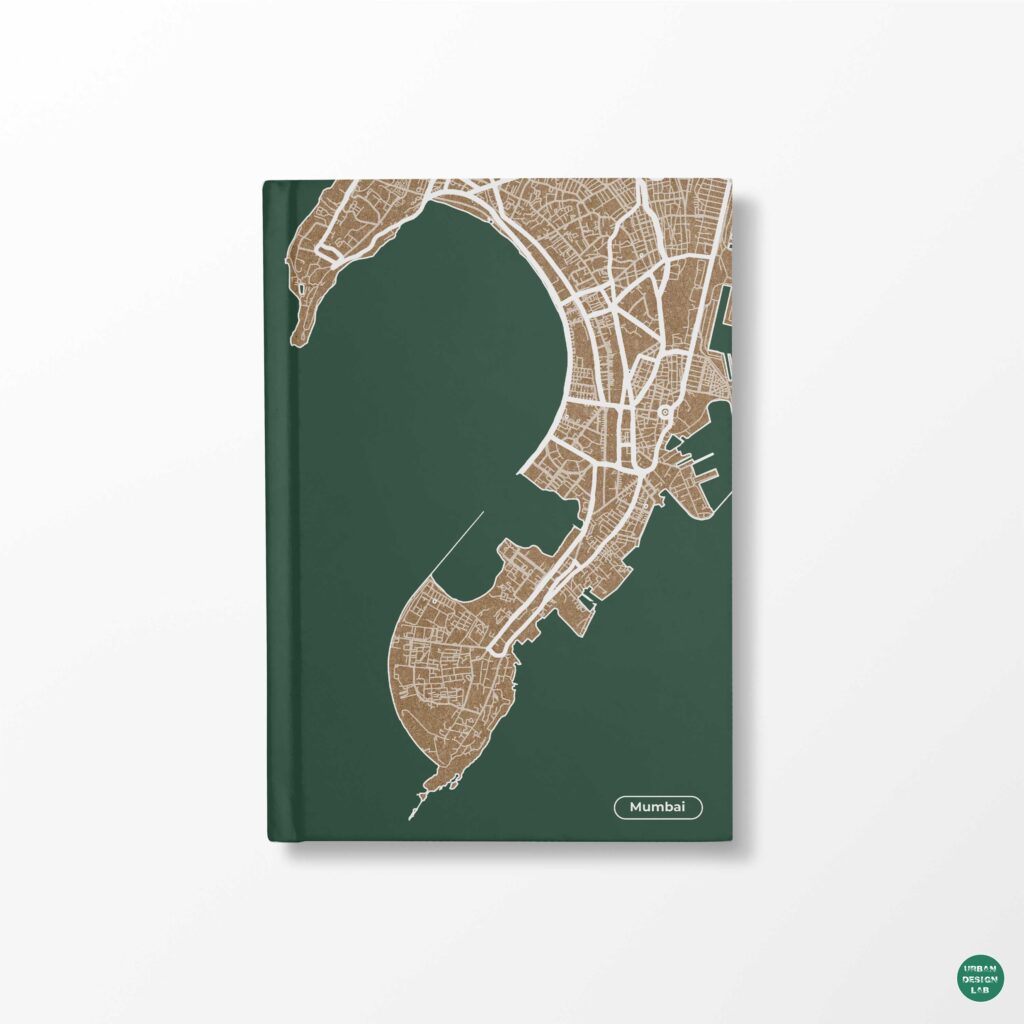
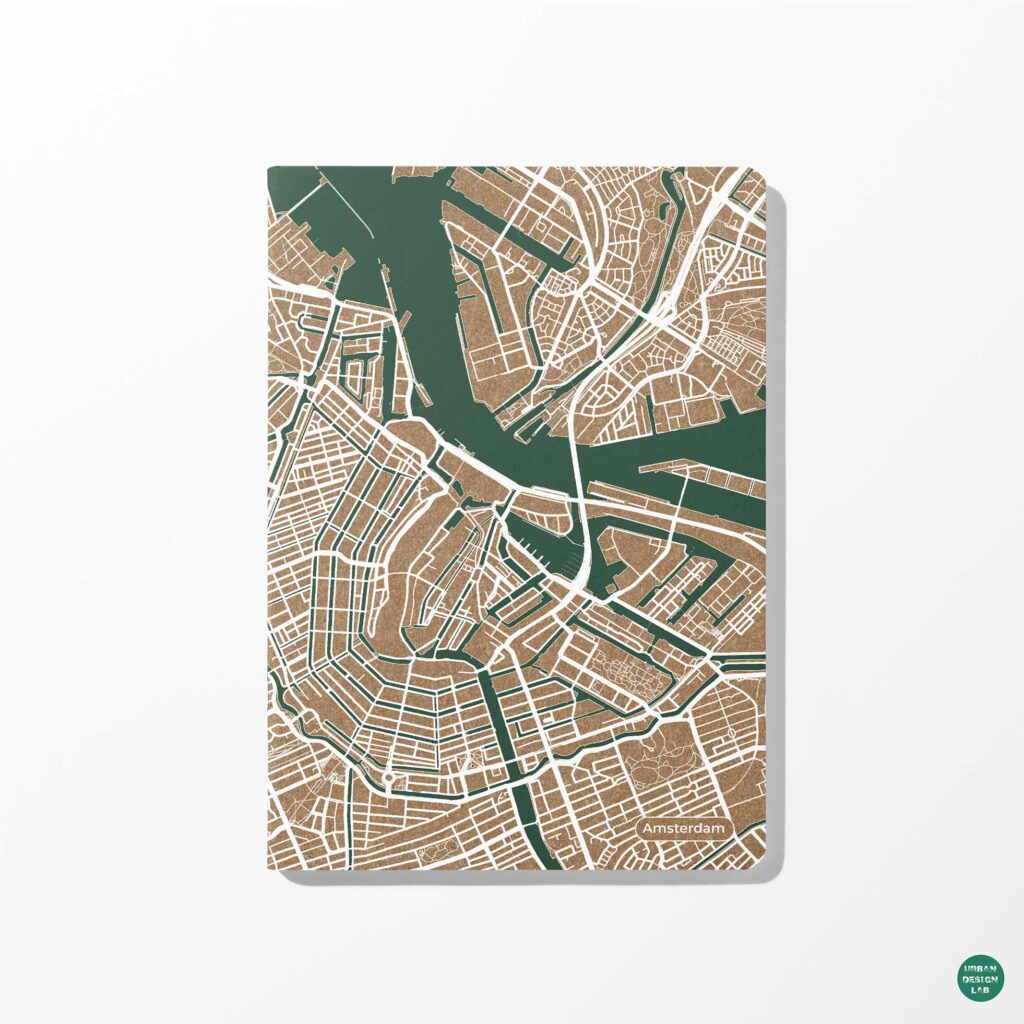
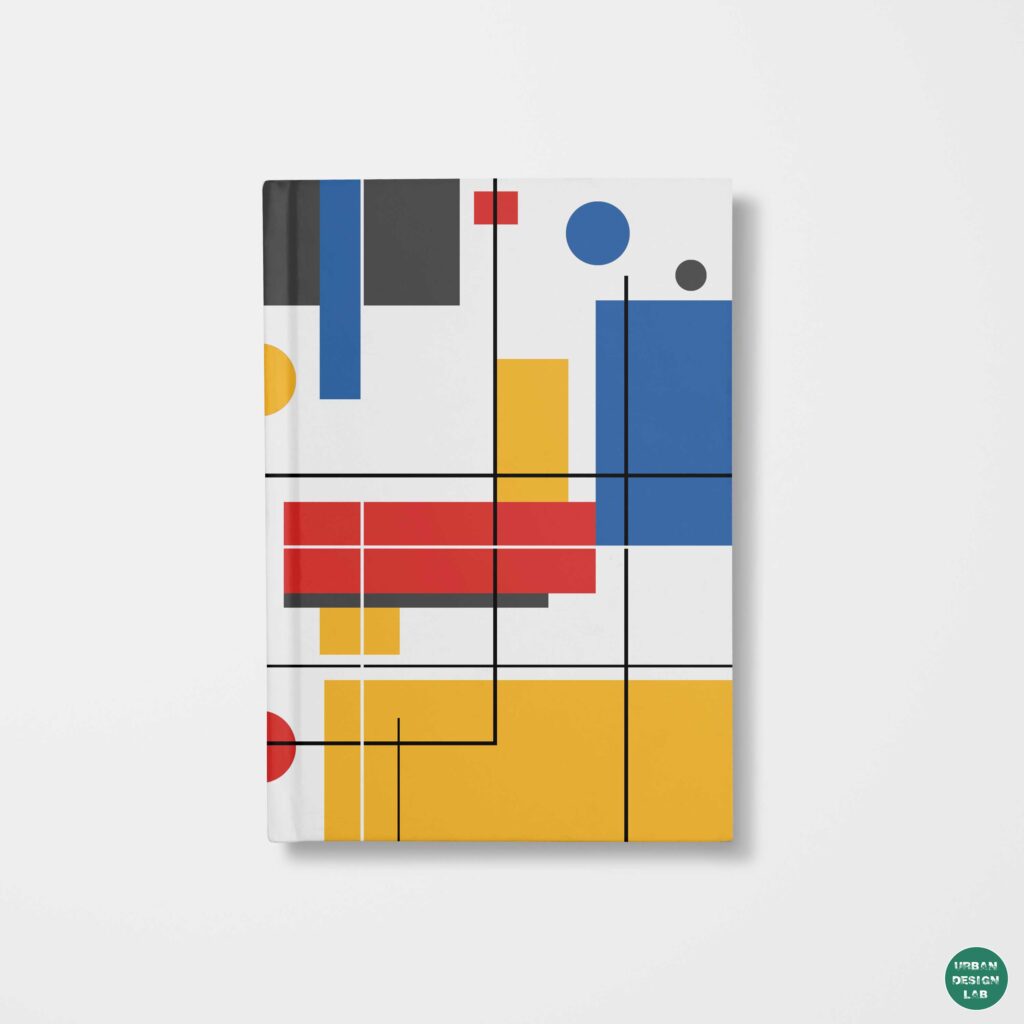
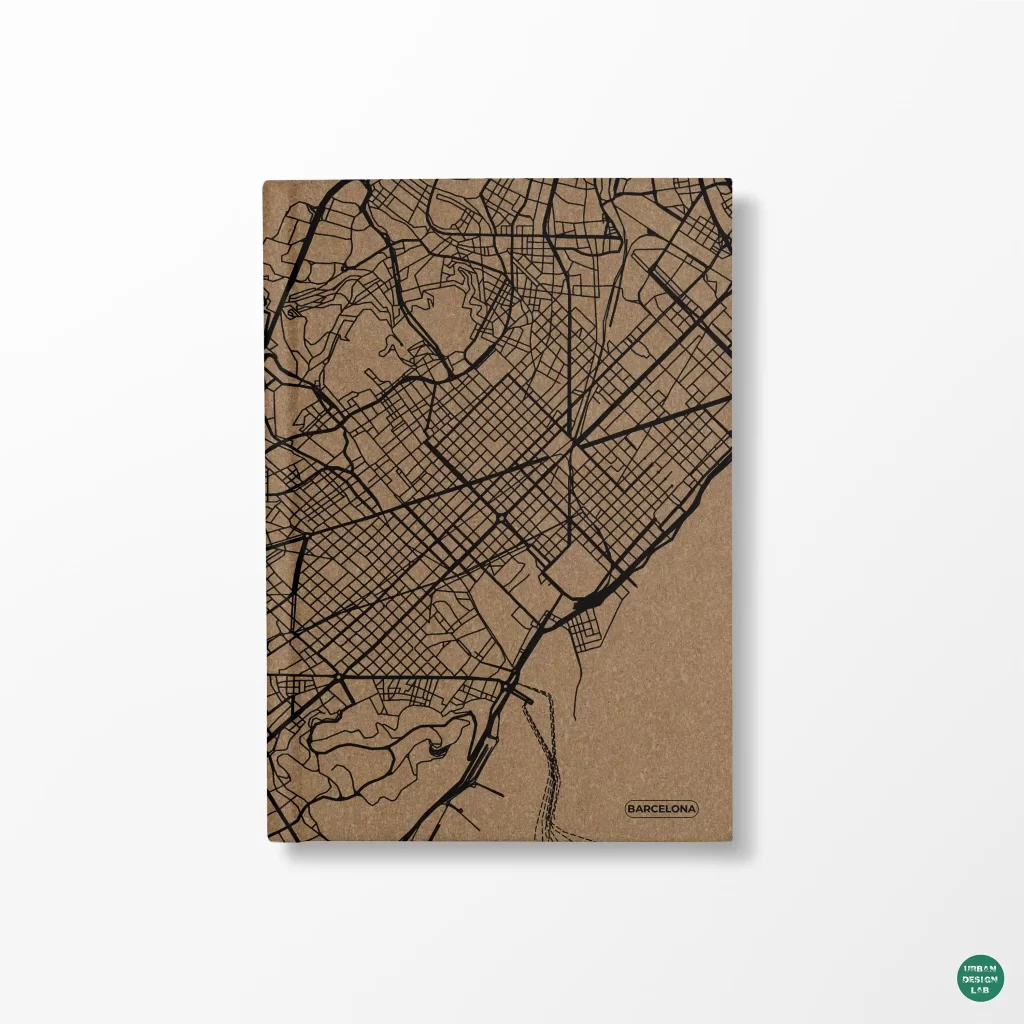

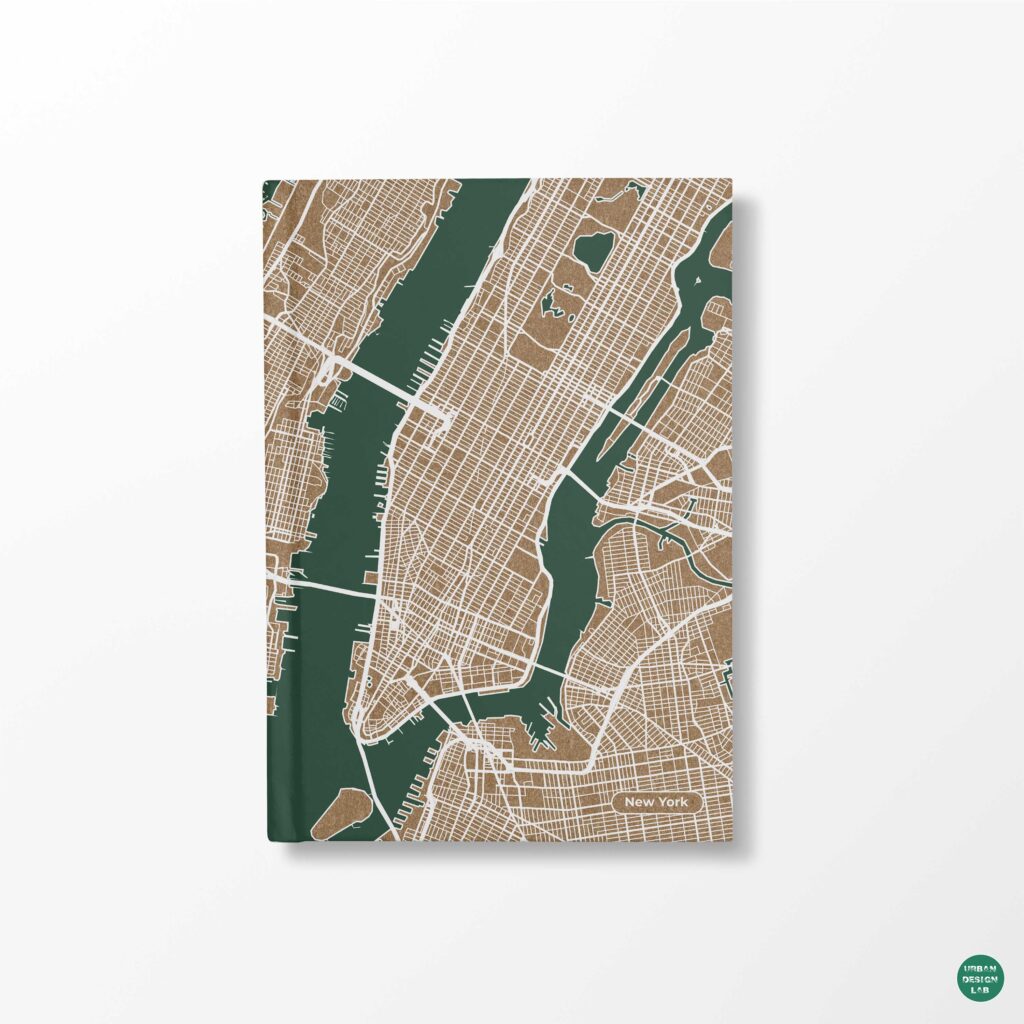
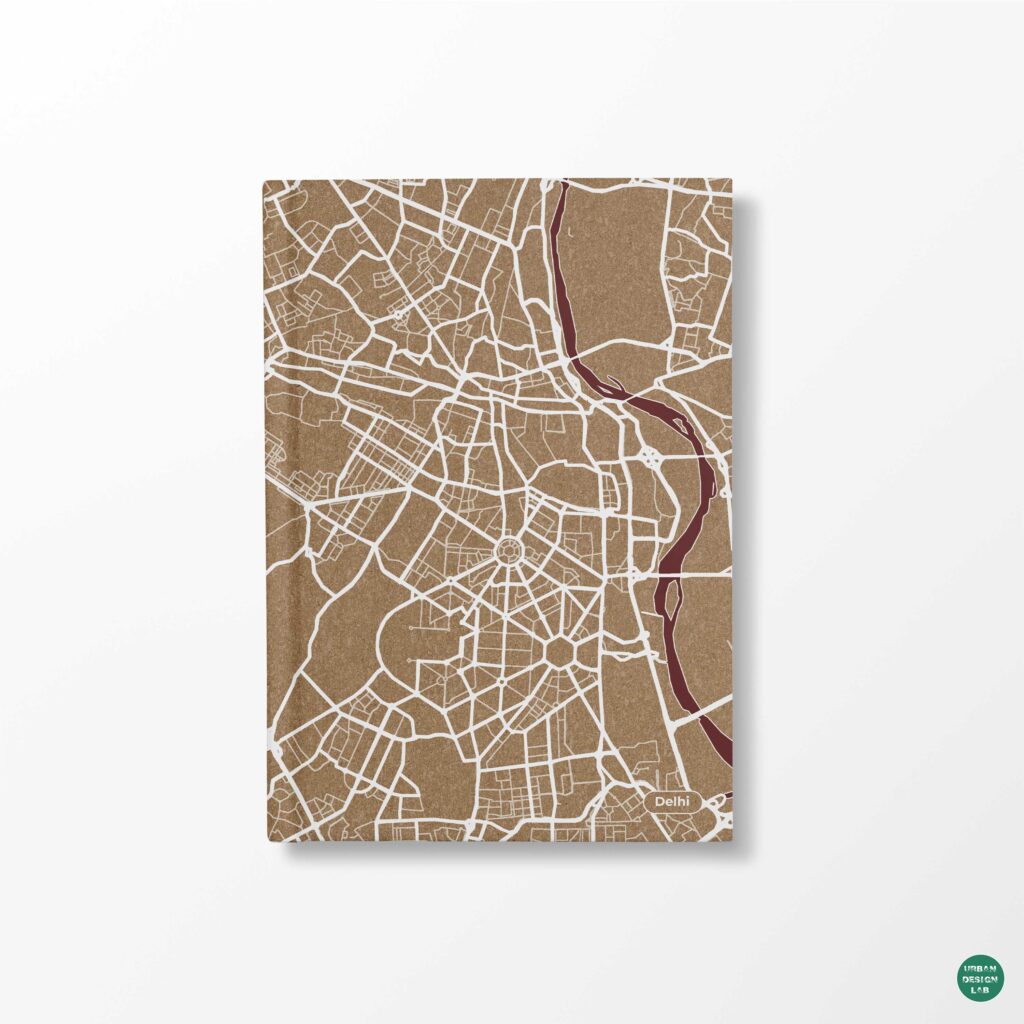
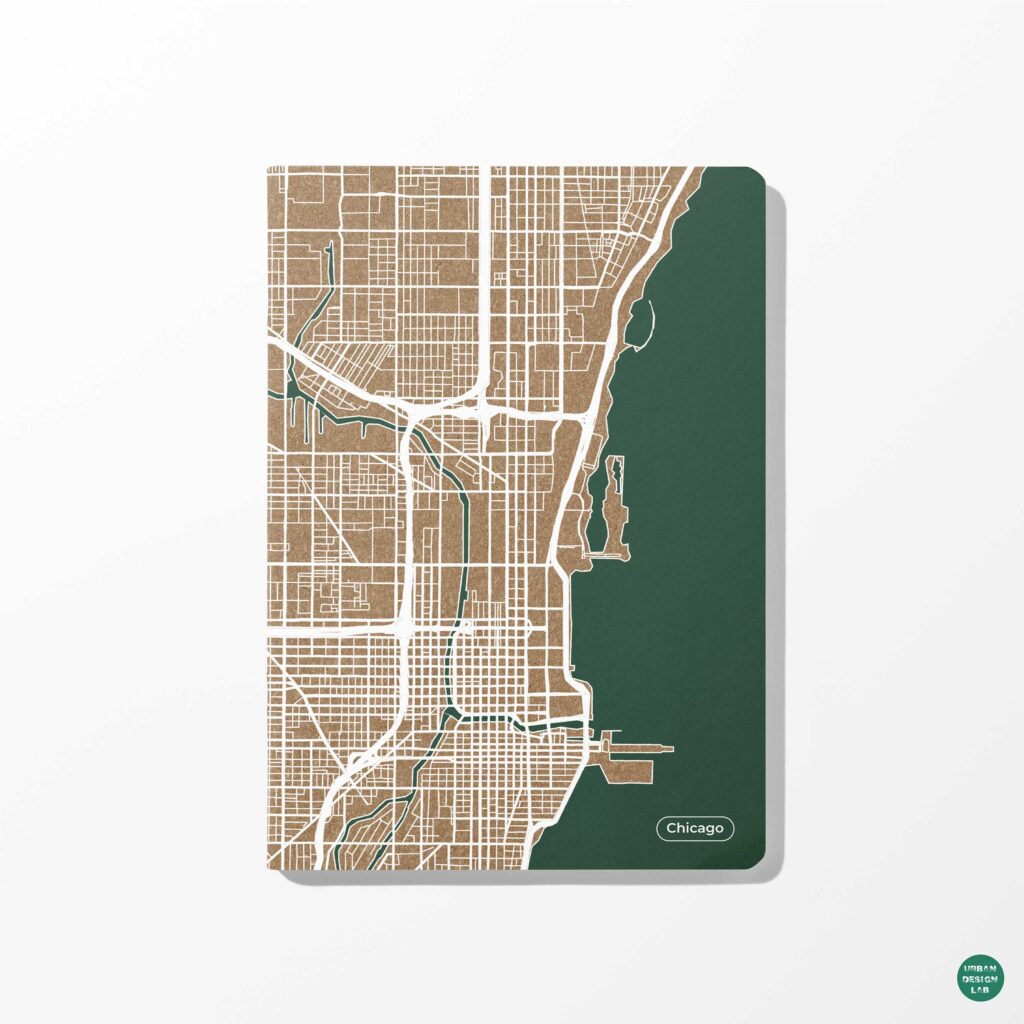
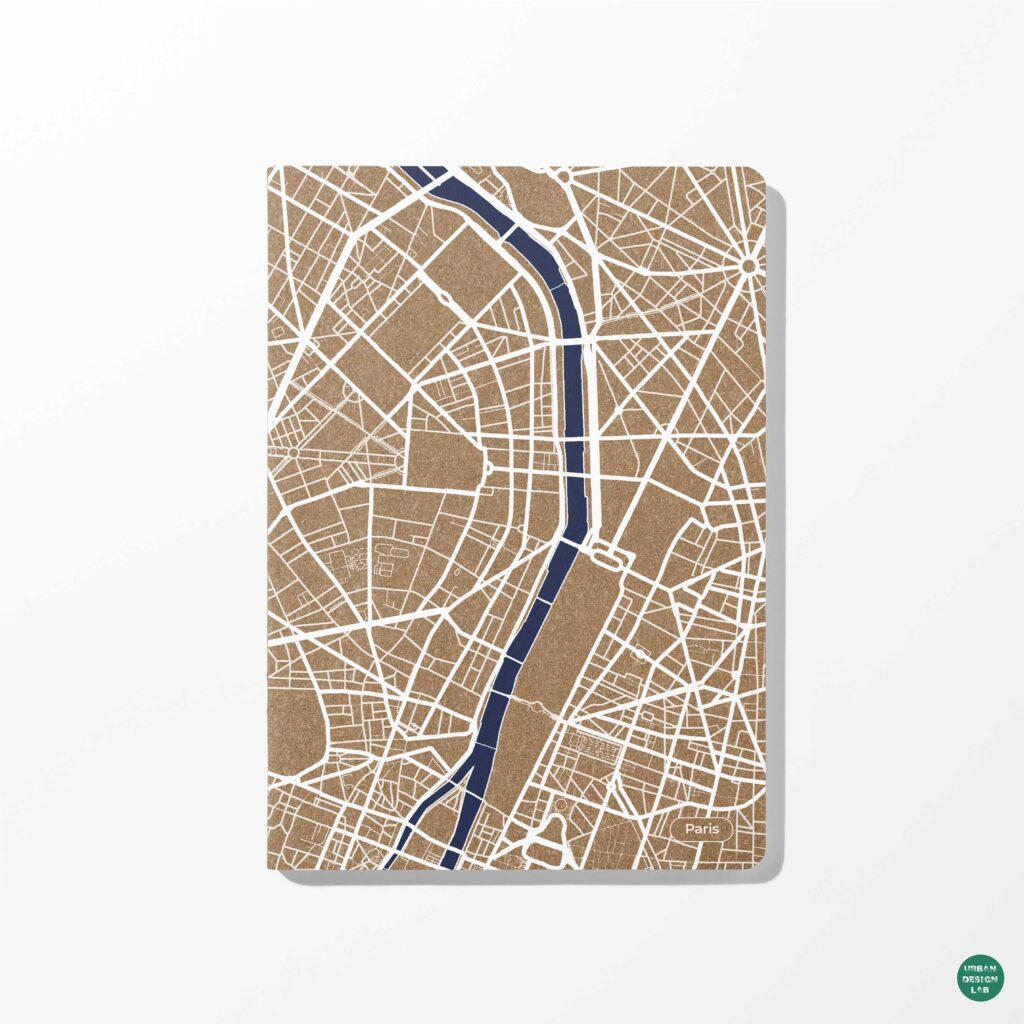

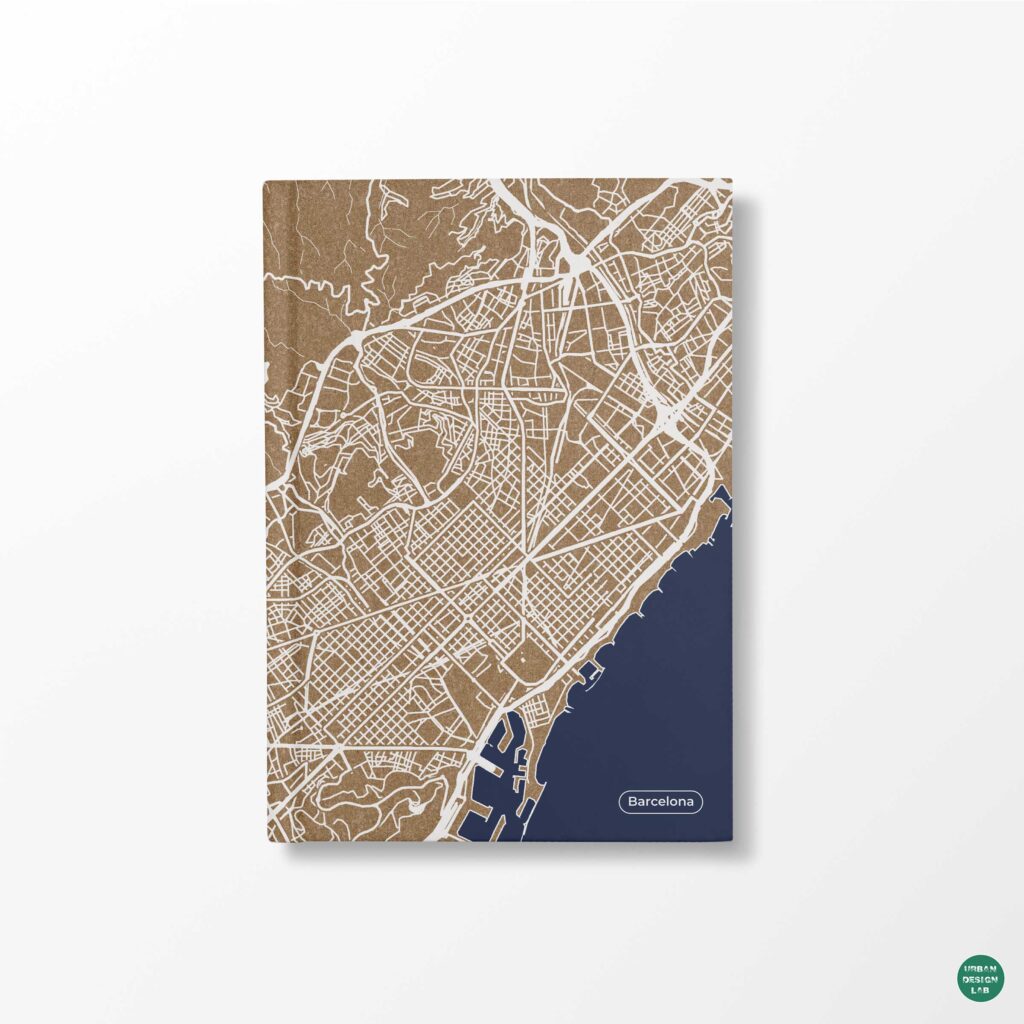
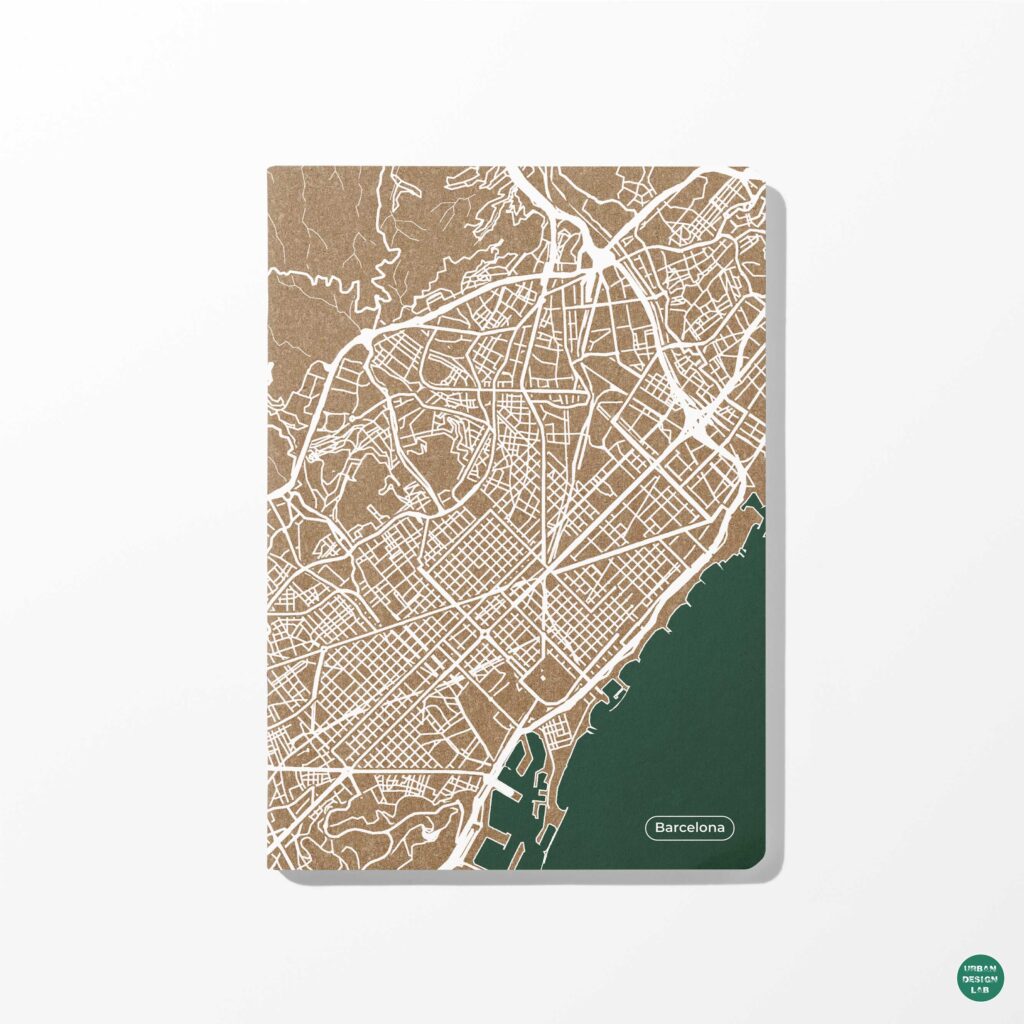
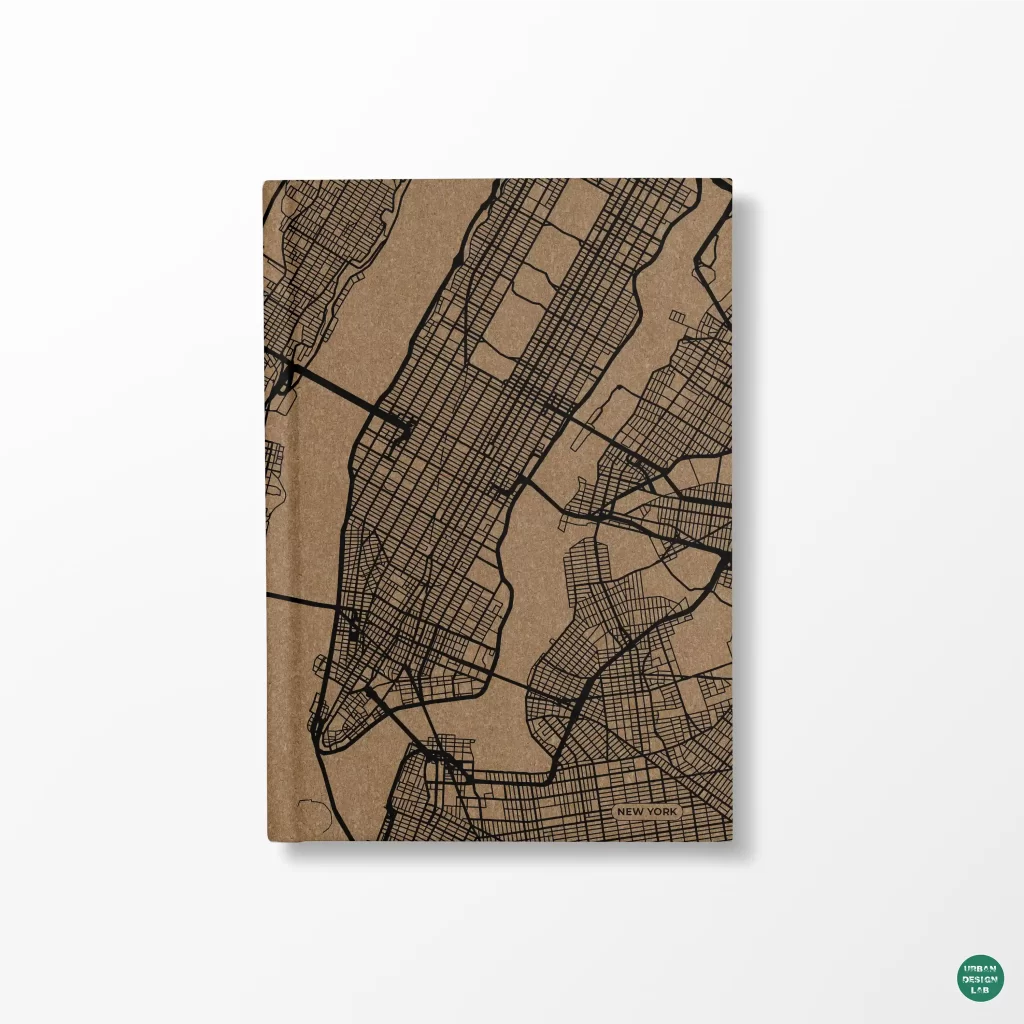


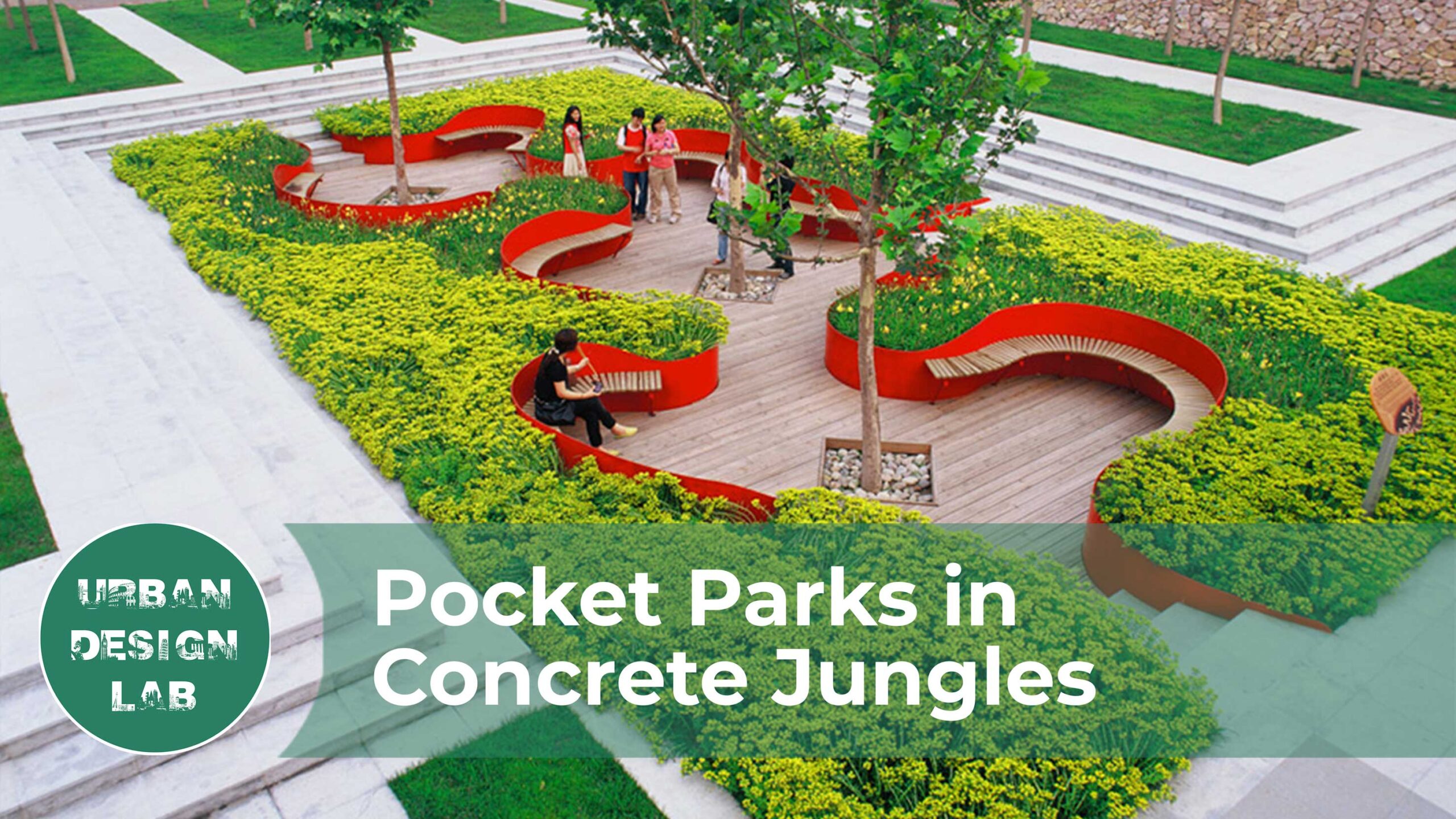


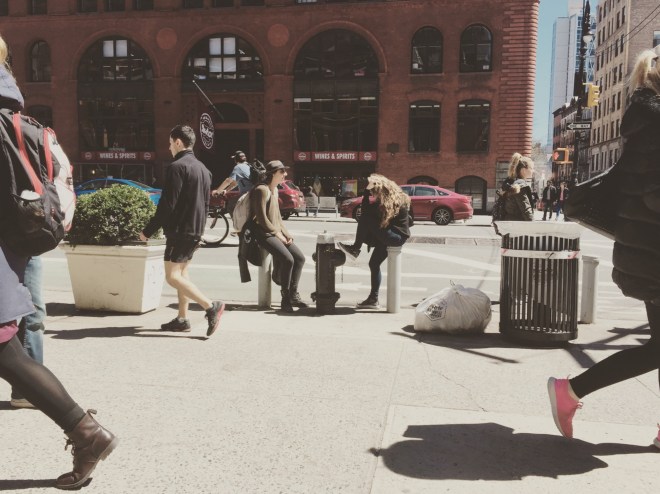
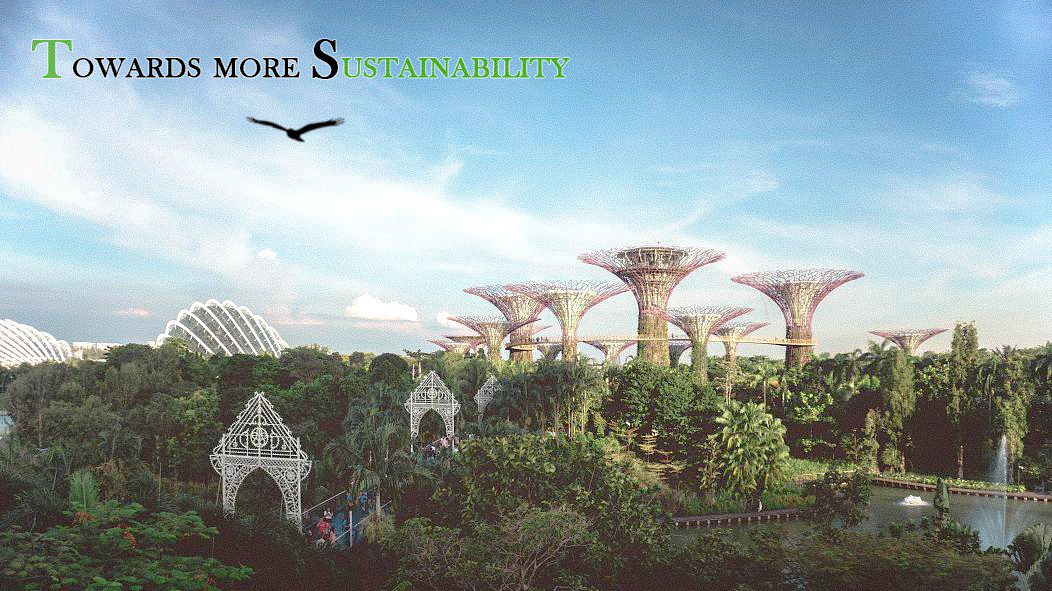
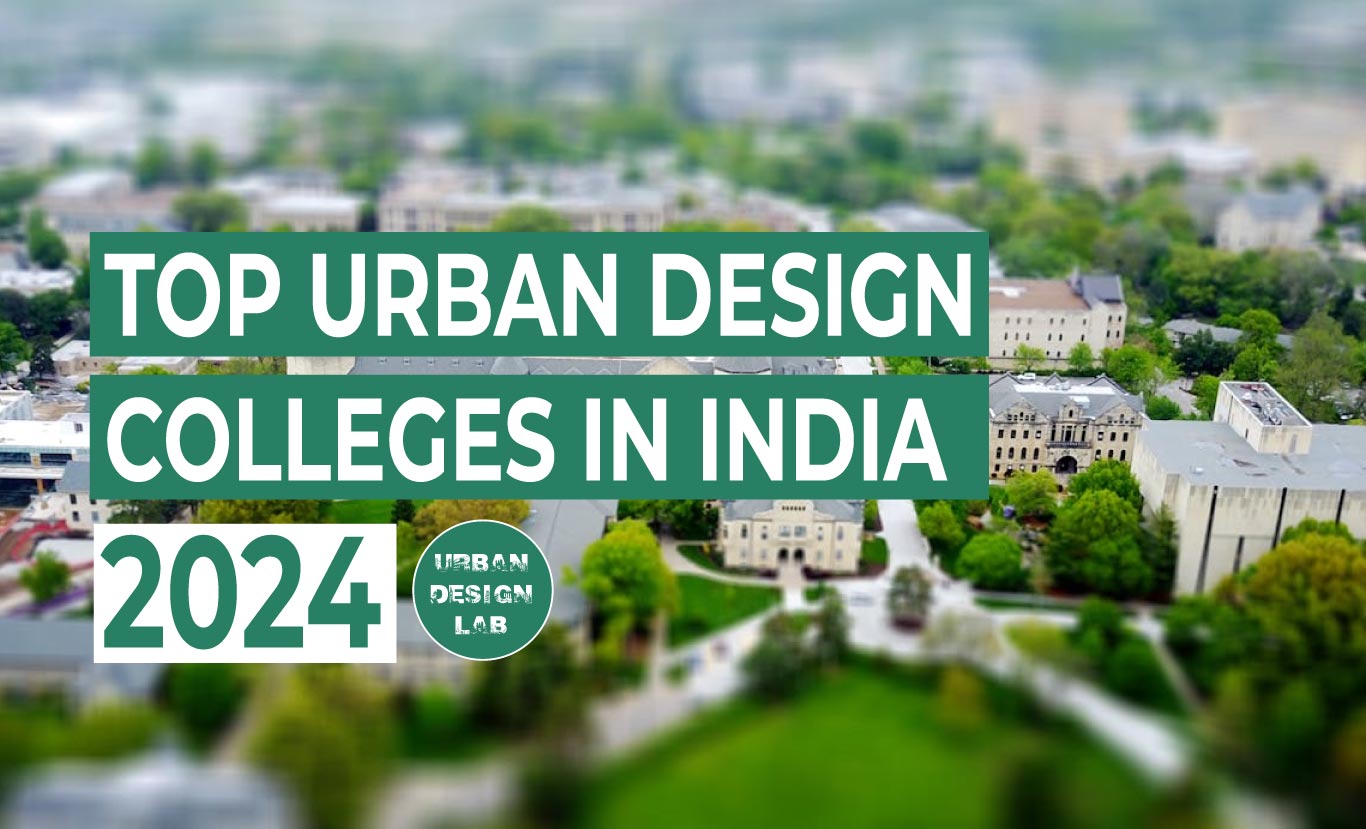

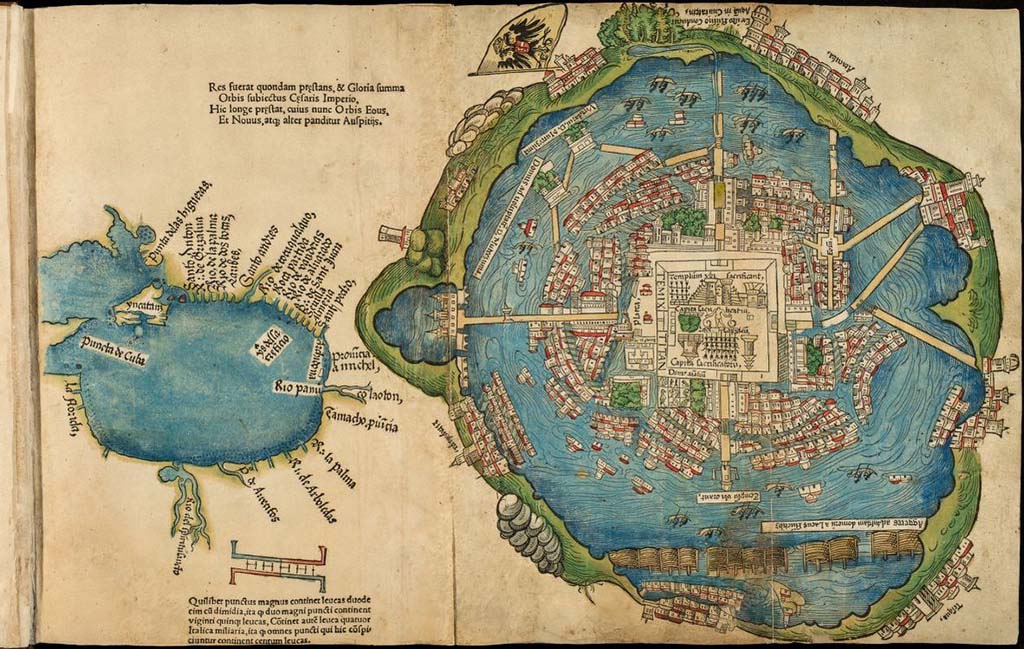
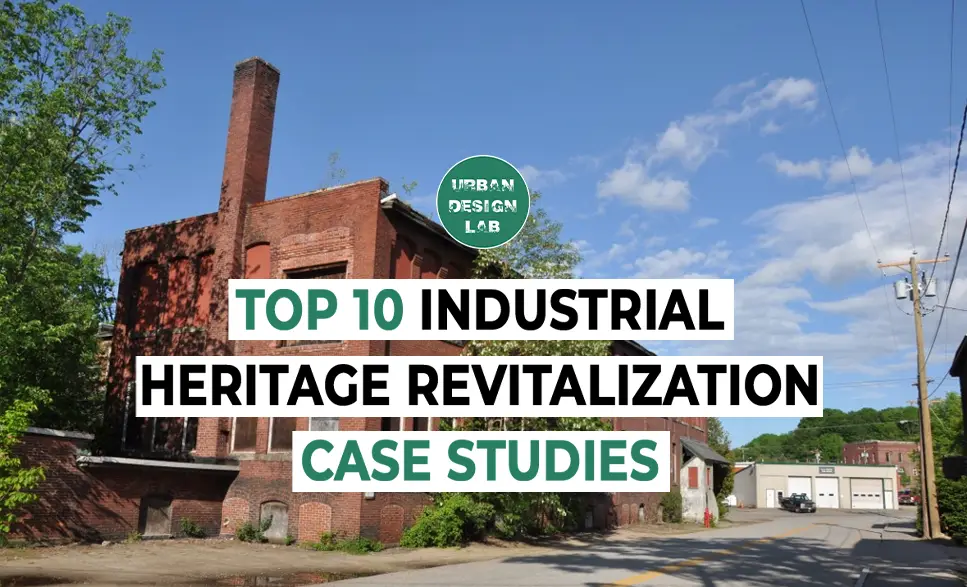


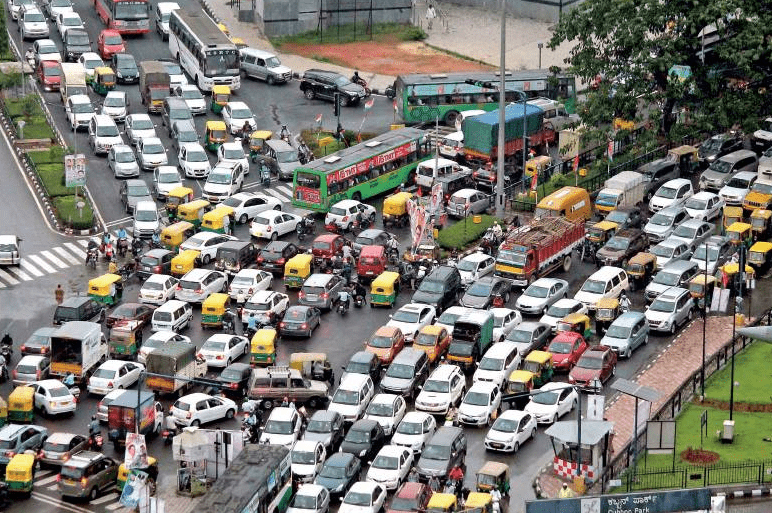
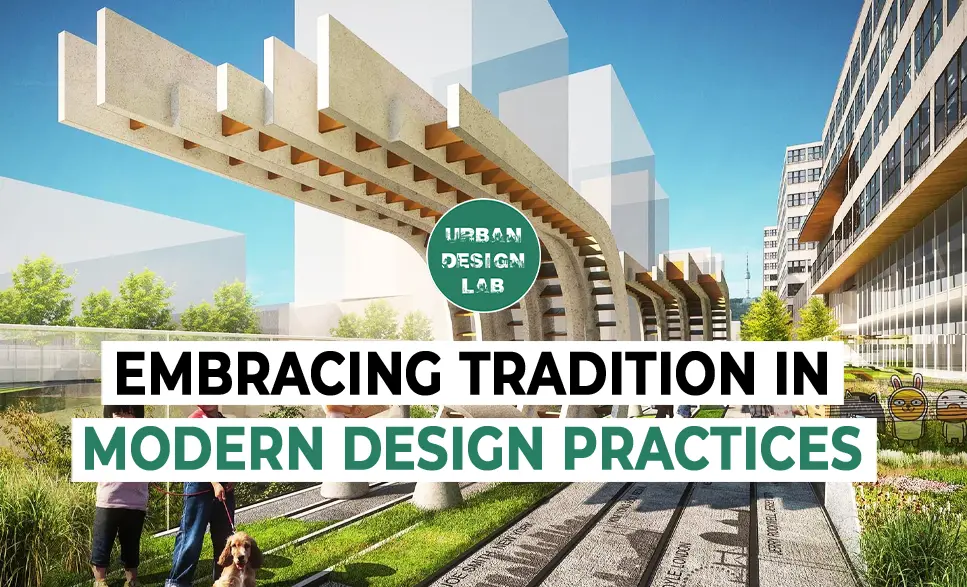




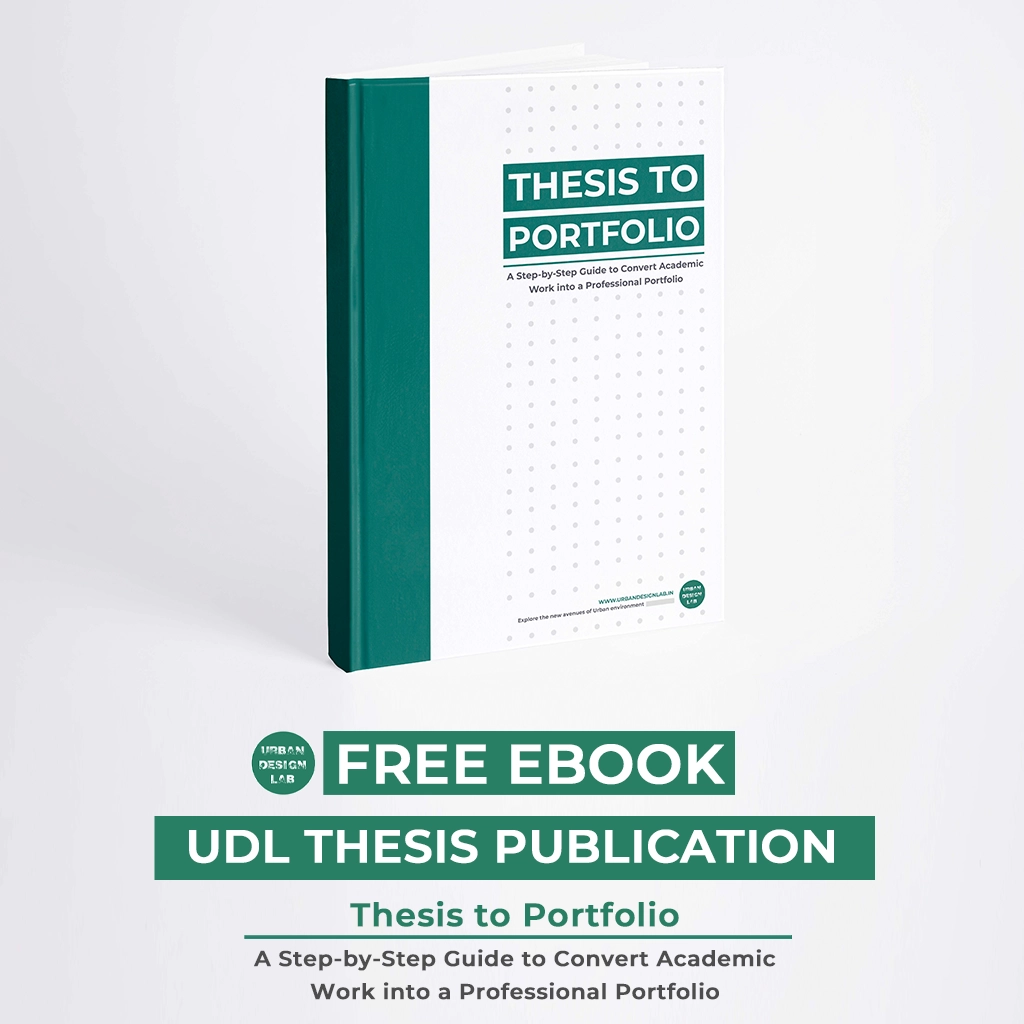
One Comment